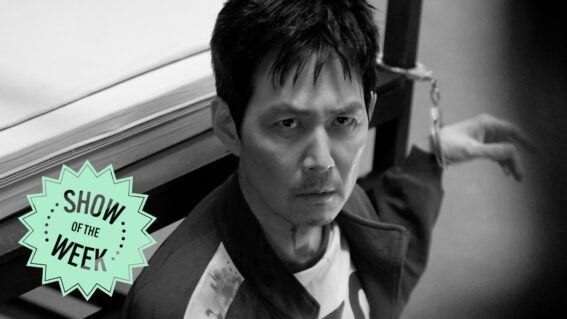Music biopics don’t always suck (especially if you like montages)
Tony Stamp looks at what does, and doesn’t, make a real-life music flick tick.
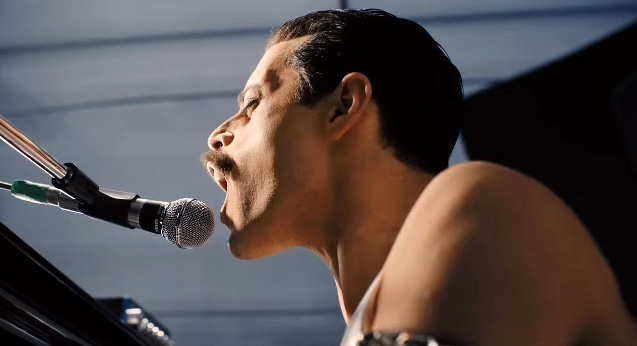
The biopic genre gets a lot of flack. And, to be honest, with good reason. It’s saddled with sticking (mostly) to the truth, when that doesn’t always make for a good movie. Stranger still is its diminutive stepchild, the musical biopic. I feel like they mostly exist so fans can congratulate themselves on recognising what’s playing out on screen. And hey, if that’s your bag, more power to you. But if you’re looking for a good story, real life isn’t always ideal.
On the other hand, if you like montages you’re in luck. These things all have montages. And they tend to be pretty samey—witness the complaints about this week’s Bohemian Rhapsody. Even the trailer was like ticking a set of boxes. Groupies, tick. Studio squabbles, tick. Grouchy old record company execs, triumphant concert appearances, rags to riches, and so on.
The best of the bunch tend to be the ones that buck convention. Milos Forman’s Amadeus (1984) stands apart because it’s set prior to recording technology, so there’s no basis for comparison. All the same, Tom Hulce’s impish Mozart is exactly the type of tortured genius that populates the genre. Geoffrey Rush played a similar figure in Shine (1996), the story of pianist David Helfgott that featured heady discussions on what differentiates art from craft.
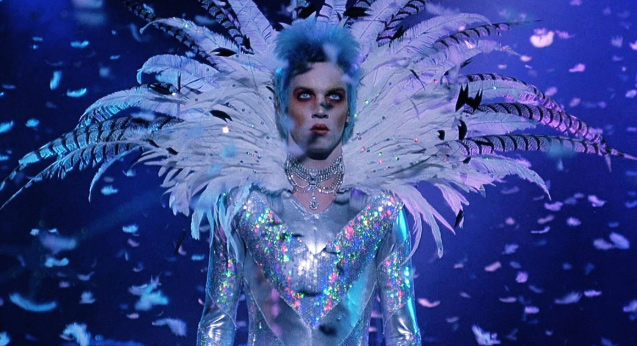
A filmmaker who keeps trying to shake up the format is Todd Haynes, whose first foray used Barbie dolls to tell the Karen Carpenter story in Superstar (1988), and refracted the life of Bob Dylan into different characters played by different actors in I’m Not There (2007). He also conceived Velvet Goldmine (1998) as a Bowie biopic, but the Thin White Duke refused, so Hayes blurred the details, and rock star Maxwell Demon (lol) was born.
There’s always the nagging feeling with biopics that you can’t really trust what you’re seeing. We all know they muck around with the details—they have to package real events into a three-act structure. Hal Ashby’s Bound For Glory (1972, based on the autobiography by Woodie Guthrie) gets around the problem by being mostly fictional. The film is great though, so should we complain?
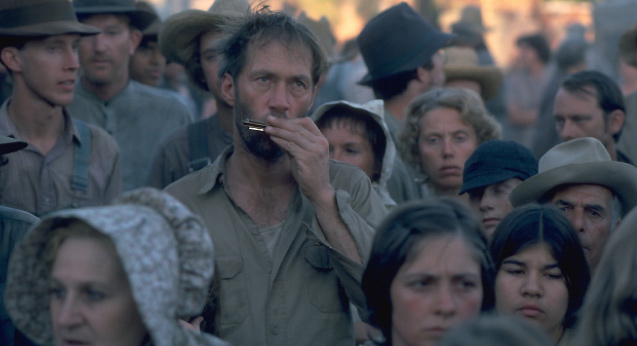
David Carradine pops on some impressively high-waisted pants to play Guthrie, a novelty in itself if you only know him from Kung Fu, Kill Bill or his grindhouse days. The film is less about the rise of a musician than the souring of the american dream, and visually it’s gorgeous, with painterly shots like an approaching dust storm, Guthrie riding the roof of a train, or a steadicam tracking him through a fruit picking camp. It also contains another recurring theme—musicians cheating on their spouses.
Bound For Glory feels of a piece with two other artistically rich entries from the 70s/ early 80s. Lady Sings The Blues (1972) has the perfect casting of Diana Ross as Billie Holiday, and an important, though grueling, story to tell. And while Coal Miner’s Daughter (1980) hits some familiar rise-to-fame beats, Sissy Spacek is brilliant as Loretta Lynn, aided by a young, blonde (!) Tommy-Lee Jones.
Inevitably these films will have multiple performance scenes, and generally they feel like you’re watching a competent cover act. It’s a weird quirk of the genre that the subject’s talent—the reason the film was made—is generally absent.
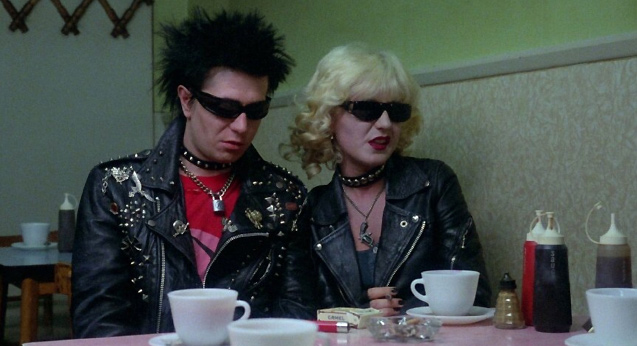
Which brings us to Sid & Nancy (1986). Fresh off the cult hit Repo Man, Alex Cox may have seemed an odd choice to direct a Sex Pistols semi-biopic, but he certainly brings a manic energy and willingness to wallow in the muck with his subjects. The movie charts the doomed relationship between Sid Vicious and Nancy Spungen, with the rise and fall of the Pistols playing out in the background. Gary Oldman is fantastic as Sid, and yes, the band scenes are great and admirably realistic (lip-synching notwithstanding). But the movie devolves into endless, grueling scenes of Sid and Nancy yelling at each other. If it seems like Cox dislikes his subjects, note that he now wishes the film ended with Sid dying in his own vomit.
On-stage realism took a step up with the Johnny Cash biopic Walk The Line (2005), and even more so with Control (2007), the story of Joy Division’s Ian Curtis. Joaquin Phoenix’s Cash impression is fine, but feels fake next to the latter film, whose actors really are playing their respective instruments live as you see them, against the initial wishes of director Anton Corbijn. Of course, it’s nowhere near as good as the real thing, but it lends the musical scenes an undeniable charge and reminds you how damn good those songs are.
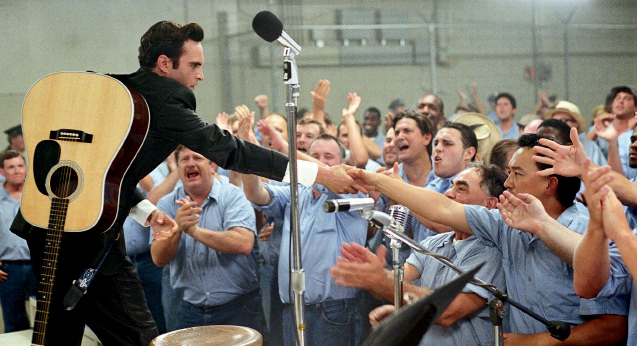
Walk The Line has emerged as a kind of platonic ideal of the genre, ticking all the boxes but doing so better than anyone prior. It’s interesting to compare it with Control, as they share a surprising amount of DNA—there’s childhood trauma, on-stage collapses, scenes where they talk to their infant child over the phone while on tour, and of course, both protagonists unashamedly, voraciously, cheat on their spouses. This tends to be waved away by the filmmakers—they were geniuses, what do you expect!
Speaking of which, Biggie Smalls. Notorious (2009) kicked off a trio of hip-hop biopics in garish fashion, paying lip service to Biggie’s talent but leaning into a sensationalist aesthetic that sometimes tips over into straight-up soft porn (mostly during scenes involving Lil Kim). It also made the dunderheaded choice of having Biggie narrate the damn thing from beyond the grave. Ugh.
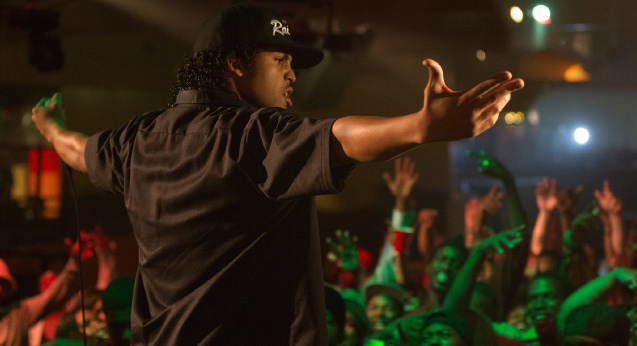
Straight Outta Compton (2015) fares much better. It’s easily the best hip-hop biopic, mainly because it looks and feels like a real movie. It’s thrilling and dramatic where Notorious pretends to be, and director F. Gary Gray brings plenty of style to proceedings. Sure, the whole thing is blatant self-mythologising from Ice Cube and Dr Dre, who served as producers, but it’s always entertaining and leans into its fantastic soundtrack.
A few years later we got the Tupac bio All Eyez On Me (2017), the less said about that the better. It’s flat, boring, and frankly insulting to the legacy of a great musician.

It’s worth pointing out the few outliers that were made for television. In 1979 John Carpenter directed Kurt Russell as Elvis in a well-regarded TV movie of the same name. The early days of Def Leppard were the subject of Hysteria: The Def Leppard Story (2001), a film made several decades too late which looks hilarious but goofily charming. And NZ’s own Exponents got the biopic treatment in Why Does Love (2017), leading local pundits to wonder who’s next.
The musical biopic is a strange beast, operating within a pretty rigid format, but some efforts do manage to shine. And some films, like the various iterations of A Star Is Born, are able to ape the style without having to adhere to boring old facts (though I’d argue Bradley Cooper’s version stumbles into a few tropes—on-stage collapse, rise-to-fame stuff… I’m sure I remember at least one montage).
Hopefully we’ll see future films that try harder than the usual band-gets-famous-and-does-drugs stuff, but we’ll see. If you want a movie that nicely covers all the criticisms, I heartily recommend Walk Hard: The Dewey Cox Story (2007), a John C. Reilly-starring parody that takes aim at Walk The Line but expands to poke fun at the entire biopic genre, and plenty of musical genres as well. It’s like watching a copy of a copy. You can congratulate yourself on recognising bits from other movies. And yeah it’s completely fake, but then, so are all these films.

















